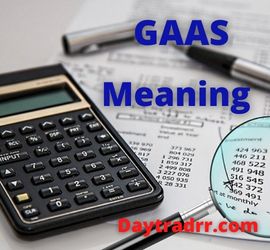What Is a Service Charge?
 A service charge is an additional fee covering administrative, processing, or service costs that are provided when purchasing a product or service. Typically, a service charge covers additional benefits that are linked to the principal product or service that is being purchased. Usually, the fee is charged at the time of the transaction. Many sectors, including restaurants, banks, and travel and tourism, levy service charges. When collected, these fees may cover either service given to the consumer or administrative or processing costs. Service charges are paid to the firm directly. They are not the same as tips, which are provided to the employee who provides the service. The amount of a gratuity is entirely up to the consumer.
A service charge is an additional fee covering administrative, processing, or service costs that are provided when purchasing a product or service. Typically, a service charge covers additional benefits that are linked to the principal product or service that is being purchased. Usually, the fee is charged at the time of the transaction. Many sectors, including restaurants, banks, and travel and tourism, levy service charges. When collected, these fees may cover either service given to the consumer or administrative or processing costs. Service charges are paid to the firm directly. They are not the same as tips, which are provided to the employee who provides the service. The amount of a gratuity is entirely up to the consumer.
A service charge is generally imposed to cover something specific. For example, when a bank charges a fee for using an ATM that’s not part of its network. Or, when a retailer charges a fee for making a payment with a credit card. It is sometimes referred to as a customer service fee or maintenance fee. Companies typically charge a service fee for things that go beyond the scope of purchasing their goods and services. It generally covers things that require more work on the company’s end. For instance, more individual interaction between the customer and company representatives.
Service Charge – A Closer Look
Service charges are extra fees associated with the purchase of a product or service. They are often gathered during the initial transaction with the customer. A sporting venue, for instance, may charge a service fee in addition to the initial ticket price at the time of purchase. This additional fee is to cover the expense of security or to provide the convenience of electronic payments. Service fees can also be another name for administrative or processing costs. Depending on the business, they are known as booking fees (hotels), security fees (travel), maintenance costs (banking), and customer service fees.
Types of Service Charge
Hospitality
In the United States, hotels and restaurants may impose a service fee that is a percentage of the entire bill. This practice is sometimes used in place of tipping. Service costs may also apply to things like a delivery fee for ordering room service at a hotel. Or, a tip added to the bill for a big party dining at a restaurant. Consider an order with a total price of $400 and a service charge is 15 percent. In that case, the total amount to be paid is $400 + (15 percent x $400) = $460.
Banking
Banks are notorious for imposing a variety of service charges. Most are established at a flat, standard rate. For example, the bank charges a monthly maintenance fee when you create a checking or savings account with them. At the end of each month, this cost is deducted from the account balance. Service fees may also be levied when utilizing a competitive bank’s ATM or transacting a wire transfer.
Travel
Airlines collect a number of service charges. For example, checked or oversized baggage costs, change or cancellation fees, and early seat selection fees. Also, inflight WiFi, food, beverage, and entertainment are just a few of the fees that airlines collect. An airport improvement fee, sometimes known as an embarkation fee, is a service tax levied on departing and transit passengers. It is imposed by the government or an airport management organization. The fees are generally applied to airport enhancements or service growth. The airport improvement fee may or may not be included in the price of a traveler’s airline ticket. In that case, the airline will transmit the money to the appropriate agency. In most cases, however, the charge must be paid at the time of departure.
Real Estate Rental
A service charge may be added to the monthly rent when renting or leasing certain types of residential properties. For example, renting a condominium may require paying an association fee in addition to the rent. The condo fee is a service payment that covers the building’s general cleaning and upkeep of common areas. Also, service fees are charged by online rental platforms that connect renters with property owners. For instance, Airbnb triggers service charges to offset the payment expenses connected with the reservation. Renters and owners are both subject to the service charge. It is normally charged upfront and determined as a percentage of the total expense.
Service Charge Versus Tips
There is a significant distinction between service charges and gratuities or tips. According to the IRS, a service fee is imposed on the client when automated gratuities are added to the bill. For example, banquet event expenses and automatic add-ons for big groups at restaurants and other eating facilities. Further, hotel room charges, bottle charges, and cruise excursion packages are all classified as service charges by the IRS. Employers must report service charges to the Internal Revenue Service in the same way that they report other earnings.
Tips, on the other hand, are entirely voluntary. Therefore, they are not automatically added to the bill. As a result, it is the customer’s choice whether or not to provide a tip. Cash or an electronic payment mechanism are both acceptable forms of providing a tip or gratuity. They might also be offered in the form of tickets or other valuable objects. A merchant or business cannot force a customer to tip. In other words, the customer must be allowed to decide how much to tip. Additionally, the consumer has the freedom to choose who receives the tip. Generally, the following factors characterize a payment as a tip. Absent these factors, the payment is likely a service charge.
- Freely offered – The payment must be made free from compulsion
- No set amount – The customer must have the unrestricted right to determine the amount
- No coercion – The payment should not be the subject of negotiation or dictated by employer policy
- Ability to choose who receives the gratuity – The customer should generally have the right to determine who receives the payment.
How the IRS defines tips versus a service charge
The Internal Revenue Service reminds employers that automatic gratuities are service charges, not tips. Employers should make sure they know the difference and how they report each to the IRS. What are tips? Tips are discretionary (optional or extra) payments determined by a customer that employees receive from customers. Certain factors are used to determine whether payments constitute tips or service charges. The absence of any of these factors creates a doubt as to whether a payment is a tip and indicates that the payment may be a service charge. An employer or employee’s characterization of a payment as a “tip” is not determinative. Again, the absence of any of the four factors creates a doubt as to whether a payment is a tip and indicates that the payment may be a service charge. (Source: irs.gov)
Up Next: Ballpark Figures – What Is a Ballpark Estimate?
 Ballpark figures are used to describe a rough numerical estimation or approximation of the size or value of something that is uncertain. In accounting, they are a rough but reasonable estimate of the worth of something that is otherwise unknown. Salespeople, accountants, and other professionals frequently utilize ballpark estimates to forecast present or future results. Given a specific rate of growth, a financial advisor may use a ballpark figure. The purpose would be to forecast the retirement nest egg a customer would have at some time in the future. A salesman may use a ballpark number as a sales estimate to predict the potential demand a factory should prepare for in the coming period.
Ballpark figures are used to describe a rough numerical estimation or approximation of the size or value of something that is uncertain. In accounting, they are a rough but reasonable estimate of the worth of something that is otherwise unknown. Salespeople, accountants, and other professionals frequently utilize ballpark estimates to forecast present or future results. Given a specific rate of growth, a financial advisor may use a ballpark figure. The purpose would be to forecast the retirement nest egg a customer would have at some time in the future. A salesman may use a ballpark number as a sales estimate to predict the potential demand a factory should prepare for in the coming period.
A ballpark figure is an educated guess providing a reasonable estimate as to the value, size, or timeframe of something. It allows the participating parties to move forward while negotiation or planning is still underway. As a concept, it has applications in business estimates, as well as in everyday life, depending on the circumstances. A ballpark figure is a broad numerical estimate of what something might amount to. It presents a concrete starting point for the purpose of business negotiations, dealmaking, or general brainstorming of ideas.




